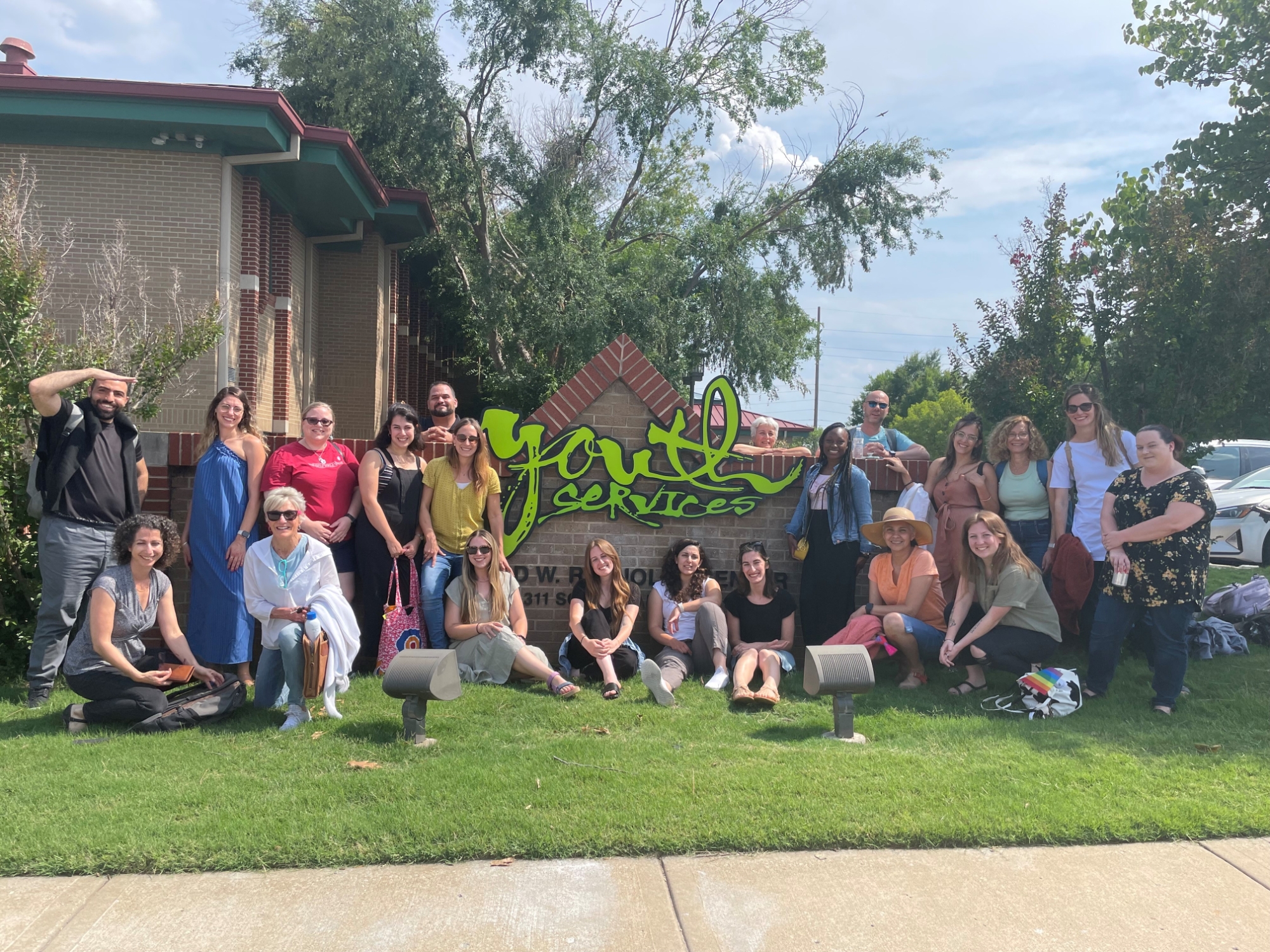
A partnership between The Anne and Henry Zarrow School of Social Work, Haruv USA at OU-Tulsa, and Hebrew University has created the International Child Welfare Exchange, a summer elective in social work. Both students based in the U.S. and the Middle East have the opportunity to compare child welfare practices in Israel and Oklahoma.
There are two trips involved in the course, students from Oklahoma visit Israel for about a week, then, later, students from Israel visit Tulsa for a similar timeframe. Participants tour non-profit and governmental agencies in both countries and they also get the opportunity to visit cultural and historical sites of significance for each area.
“The opportunities to learn about social work in another country is very valuable,” says Julie Miller-Cribbs, MSW, Ph.D., director of the Anne and Henry Zarrow School of Social Work. “Cross cultural comparisons help us find similarities and differences in social work practice. It also helps deepen our understanding of our own practice assumptions and pushes us to think beyond our borders.”
Jon Kratz, MSW, LCSW, assistant professor in social work and a faculty member who accompanied the students on the trip, mentioned the varied reactions he saw in the Oklahoma students.
“The Israeli system is structured in a way that is very different from Oklahoma,” he says. “The geopolitical context in each country provided an opportunity for students to consider why and how child welfare systems have developed into the structures we work in today.”
He also described an interesting turnabout experience in learning how others live. During the Israel trip the Oklahoma students experienced the stress that Israeli people live with as they monitored news regarding fighting in Gaza. Then the Israeli visitors experienced natural disaster related stress as they happened to be in Tulsa during a storm-induced weeklong power outage across the city including the OU-Tulsa campus.
During the Tulsa portion of the exchange, despite weather-related challenges, students visited sites such as Greenwood Rising, John Hope Franklin Park and Youth Services of Tulsa to gain an understanding of historical trauma in Oklahoma. They visited the Parent-Child Center of Tulsa and learned about the state of children and the foster care system in Oklahoma. At DVIS (Domestic Violence Intervention Services) they learned about how children are affected by domestic violence and experienced a simulation exercise to practice skills for this scenario. They also spent a day in Tahlequah learning about Indian Child Welfare.
Generous support from the Charles and Lynn Schusterman Family Foundation provides all travel expenses, lodging, food and transportation for each student.
Kratz says a major benefit of the elective is the development of meaningful connections and even friendships with social workers in a different country. Many of the Israeli students have stayed in touch with their Oklahoma colleagues and the collaboration has continued into the fall semester, well past the end of the elective course.